
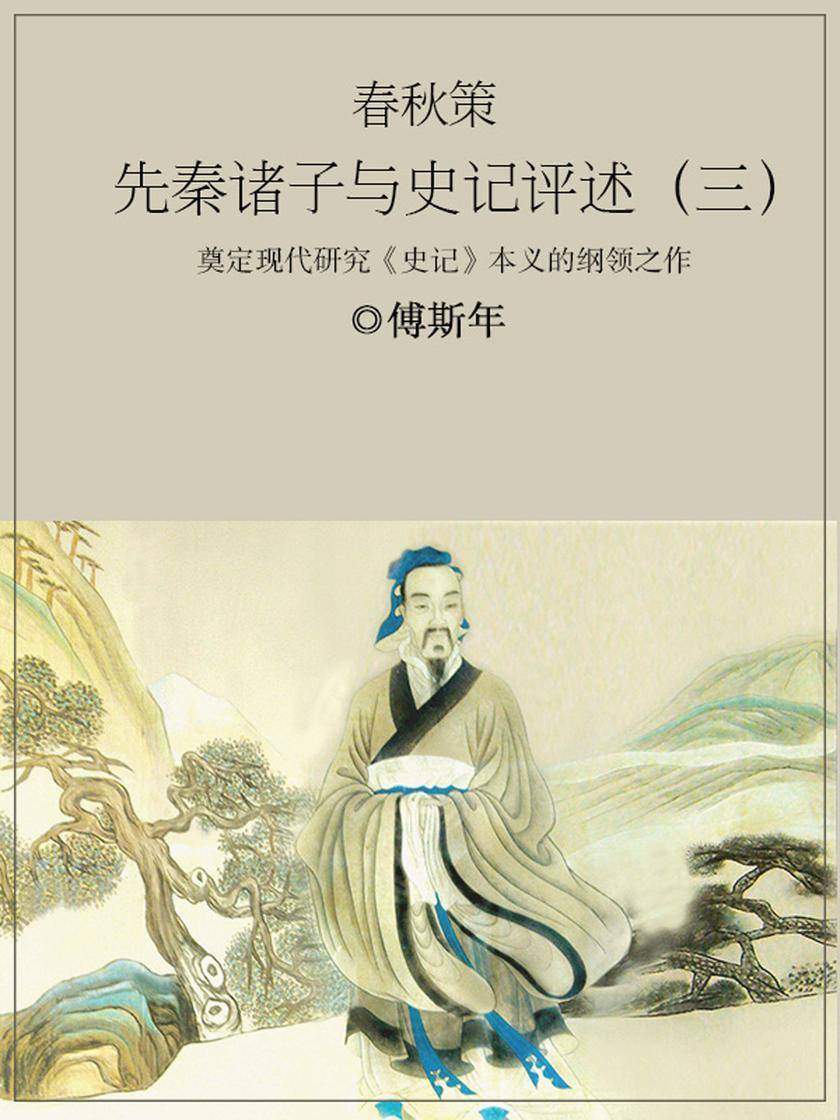
春秋策:先秦诸子与史记评述(三)
¥10.99
诸子百家学说,一览无余;华夏史诗绝唱,贯通古今。《春秋策:先秦诸子与史记评述》收藏整理了傅斯年先生关于《史记》的珍贵讲义资料,开创了现代《史记》研究的先河,他将中国近代的治学方法和西方的科学方法相结合,创造了一套具有中国特色又有时代精神的历史研究新方法,为中国传统史学研究开辟了一条新的研究途径。本书内容代表了傅斯年*时期的精华,对后世研究史记有着巨大的影响。


左传-1
¥7.78
《春秋左氏传》(或称 《左氏春秋》,简称《左传》),多以史实解释《春秋》,起自鲁隐公元年(前722年),迄于鲁哀公二十七年(前468年),以记事为主,兼载言论,叙述详明,文字生动简洁,全面反映了当时的社会历史面貌,既是重要的儒家经典,又是我国部完整的编年体史书,在文学上也有很高的成就。

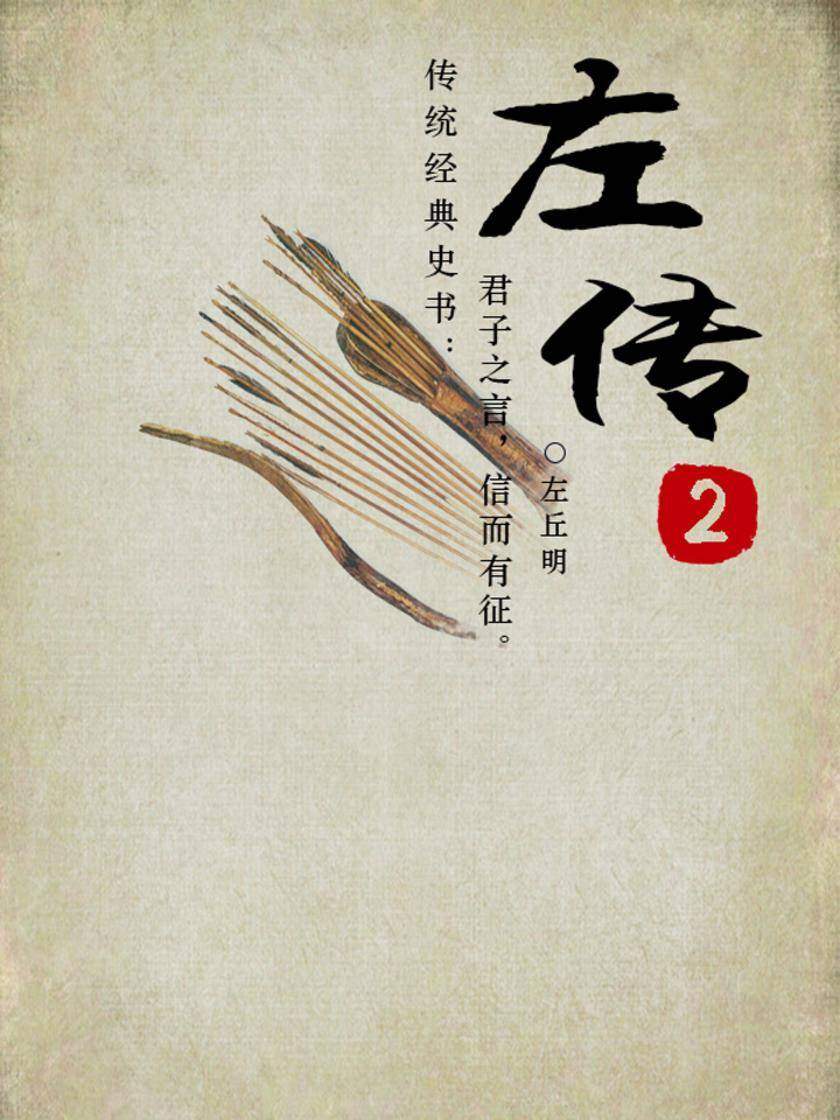
左传-2
¥6.99
《春秋左氏传》(或称 《左氏春秋》,简称《左传》),多以史实解释《春秋》,起自鲁隐公元年(前722年),迄于鲁哀公二十七年(前468年),以记事为主,兼载言论,叙述详明,文字生动简洁,全面反映了当时的社会历史面貌,既是重要的儒家经典,又是我国部完整的编年体史书,在文学上也有很高的成就。


左传-5
¥6.99
《春秋左氏传》(或称 《左氏春秋》,简称《左传》),多以史实解释《春秋》,起自鲁隐公元年(前722年),迄于鲁哀公二十七年(前468年),以记事为主,兼载言论,叙述详明,文字生动简洁,全面反映了当时的社会历史面貌,既是重要的儒家经典,又是我国部完整的编年体史书,在文学上也有很高的成就。

世界征服者史(上下) (汉译世界学术名著丛书)
¥44.26
《世界征服者史(套装全2册)》是研究蒙古史的一部重要著作,记录了13至14世纪蒙古帝国兴起与强盛时期的大量史实,全书可分为三大部分:部分包括成吉思汗、窝阔台汗和贵由汗时期的历史;第二部分包括当时的中亚和波斯史;第三部分则以较大篇幅叙述了蒙哥汗基及其统治初期的史实。《世界征服者史(套装全2册)》旁征博引,史料翔实,是研究蒙古史的重要参考文献。

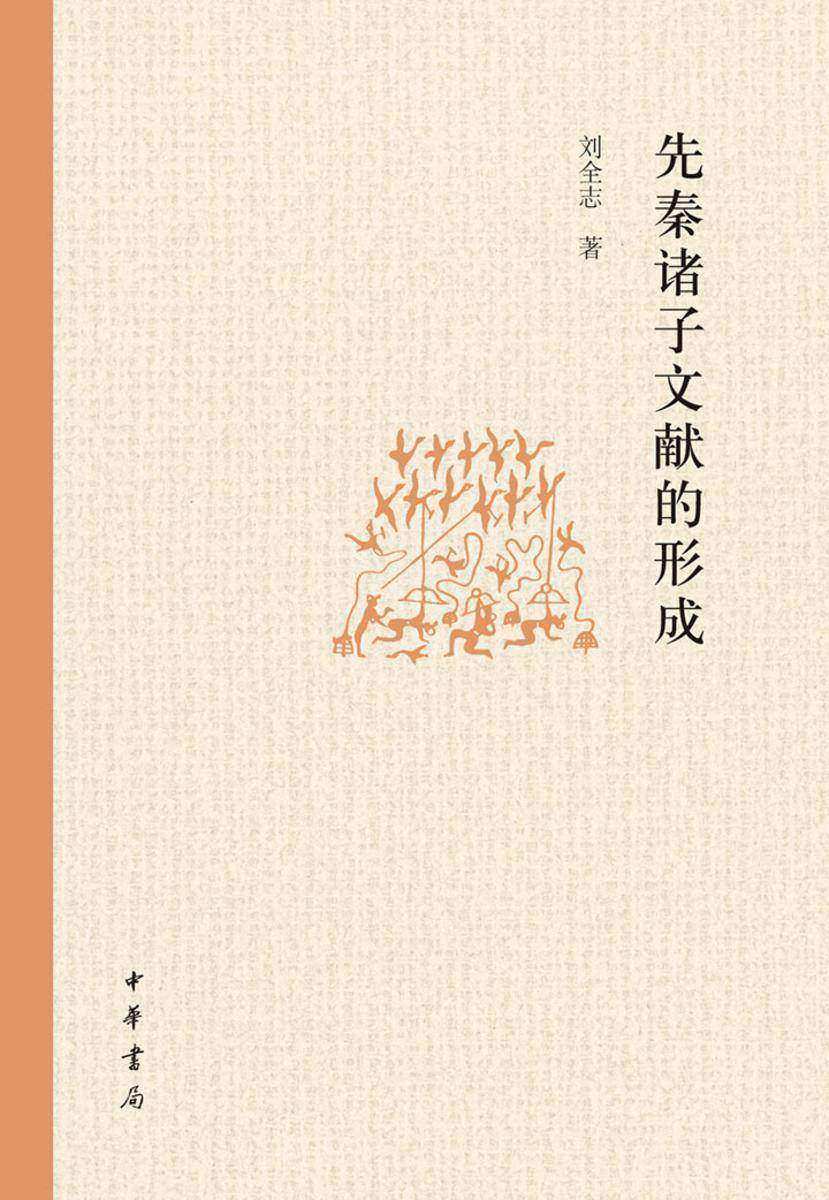
先秦诸子文献的形成 中华书局出品
¥40.81
从春秋末期至秦国统一前,这一阶段的文化活动主体显然是以先秦诸子为代表的士人阶层。诸子各家观点不同,学派理念有别,但他们所从事文化活动都以一定的知识、观念为基础,即通过对某类知识、观念的衍生,进而提升出学派的立身准则和价值追求,而诸子文献则是这一文化活动的文本化成果。本书力求通过挖掘知识、观念衍生序列背后的文化制度,来展现出先秦诸子著述的基本轨迹。 本书所谓的知识、观念、制度均是取其广义:知识是指一个时代对自然、社会以及人类自身的看法和认识;而观念则是知识的综合和系统化。一定的知识、观念通过某种文化制度、运行途径,又衍生出新的知识、观念,进而形成了多种类别的文献体系。与此同时,这一文献体系也会反过来促使新的知识、观念、文献文本的衍生和发展。所谓的文化制度,包括各种法律法规、政策以及各种习惯、风俗、传统等,即它不但指朝廷的纲常政制、刑法律典,而且指民间的家规族法、习俗惯例,乃至百姓日用而不知的风俗习惯。结合这些知识、观念、文化制度的定义,本书把先秦诸子所面对的知识、观念分为礼乐教化、道家谋略、实用技艺、政治综合等四个类别,力求通过这些知识、观念背后的各种文化制度,来呈现先秦诸子著述的基本过程。
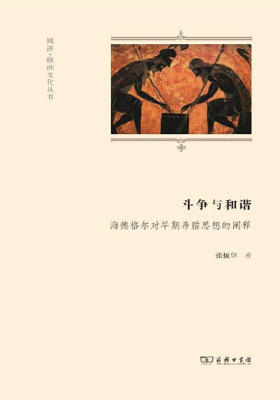
斗争与和谐
¥16.80
本书的研究主题是海德格尔对前苏格拉底思想家,即阿那克西曼德、巴门尼德、赫拉克利特的解释的总体研究。海德格尔对前苏思想的解释依时间顺序可分为五个阶段:前史(1919年至《存在与时间》)、摸索性起步(30年代初)、决定性开端(1935年)、高峰(40年代前期)和晚期(二战以后)。 本书的考察集中于后三个阶段,它们真正表现出海德格尔基于自己思想雄心的、对前苏格拉底思想的本质阐释。本书以1935年的《形而上学导论》为出发点和参照系,围绕海德格尔思想中的两股力量,即polemos和logos进行展开,追踪了海德格尔思想从强调斗争到强调和谐的转变过程。在这条考察线索上,海德格尔对前苏格拉底思想的解释,以及海德格尔本人的思想特点,都得到了进一步揭示。本书还从总体上评价了海德格尔返回前苏格拉底的意图与可能性,指出这条道路的启发行及其限度;并试图在海德格尔之后,借助更多思想家、学者的视角,来摆正前苏和苏格拉底—柏拉图的关系,思考西方哲学的未来走向。 ? 同济·欧洲文化丛书是由同济大学欧洲思想文化研究院主编,致力于欧洲哲学文化研究的一套丛书,其内容涉及德国哲学、法国哲学、欧洲诗学(文艺)、欧洲基督教哲学等多个领域。无论在历史上还是在当今世界,欧洲思想都有着特别重要的地位和价值,本丛书愿以同舟共济的精神,推进我国的欧洲文化研究事业。

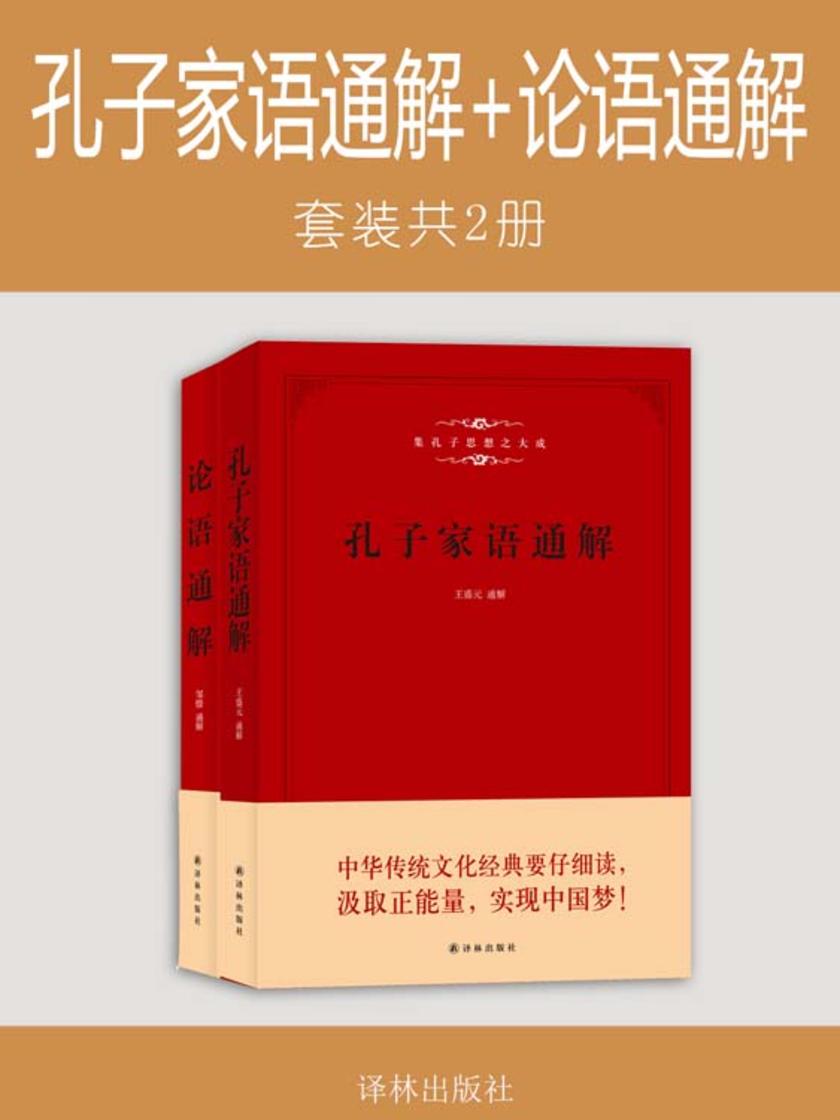
孔子家语通解+论语通解(合售二册)
¥23.98
孔子家语通解+论语通解(合售二册),《论语》一书,成于很多人之手。主要是孔子弟子及再传弟子。孔子(前551年~ 前479年),子姓, 孔氏,名丘,字仲尼, 春秋时期鲁国陬邑(今山东曲阜)人,先祖为宋国(今河南商丘市夏邑县)贵族。中国古代的大思想家和大教育家、政治理论家,儒家学派的创始人。相传曾修《诗》、《书》、《礼》、《乐》,序《周易》,撰写《春秋》。他一生从事传道、授业、解惑,被中国人尊称“至圣先师,万世师表”。 相传他有弟子三千,贤弟子七十二人,曾带领部分弟子周游列国。孔子的思想对后世产生了极其深远的影响。孔子死后,其弟子及其再传弟子把孔子及其弟子的言行语录和思想记录下来,整理编成著名的儒家学派经典的《论语》。 《孔子家语》是中国古代记述孔子思想和生平的著作,其内容是自汉朝以前到汉朝早期不断编纂而成,后来王肃对其进行整理,凡二十七卷,现存十卷。《孔子家语》的争议很多。颜师古注《汉书》时,曾指出《孔子家语》二十七卷本“非今所有家语”。王柏《家语考》首先提出《孔子家语》是伪书,清代姚际恒《古今伪书考》、范家相《家语证伪》、孙志祖《家语疏证》,还有崔述、皮锡瑞、王聘珍、丁晏也都认为是伪书。

海德格尔文集:柏拉图的《智者》
¥120.00
海德格尔全集第19卷《柏拉图:<智者篇>》收集的是海德格尔于1924—1925年冬季学期在马堡大学所举行的讲座课的内容。全书共81节,由“预备思考”(Vorbetrachtung, §1-3)、“引导部分”(Einleitender Teil, §4-26)、“过渡”(überleitung, §27-32)、“主体部分”(Hauptteil, §33-81)这样几个大部分构成。 在“引导部分”中(共23节),海德格尔主要讨论了亚里士多德《尼各马科伦理学》第六卷、第十卷(6-7章),《形而上学》卷(1-2章);“主体部分”(共49节)则是对柏拉图《智者篇》的详细研读。海德格尔之所以花那么大的篇幅来阐释亚里士多德,那是因为他基于解释学原则,把亚里士多德视为理解柏拉图的起点(Ausgang),通达柏拉图的门径;该书中的这部分内容也构成了海德格尔的亚里士多德思想解释的重要组成部分。至于对柏拉图晚期对话《智者篇》的解读,更是清晰地展露出了海德格尔思想中的双重主题“是”(Sein)与“真”(Wahrheit)之间的内在联系。 该书的另一重要价值在于同海德格尔的主要著作Sein und Zeit之间的内在关联。无论是在时间上(Sein und Zeit虽首次发表于1927年春,但其实际完成时间为1926年4月左右),还是在内容上,该书都可视为Sein und Zeit的序曲,这对于理解Sein und Zeit具有不可替代的价值。
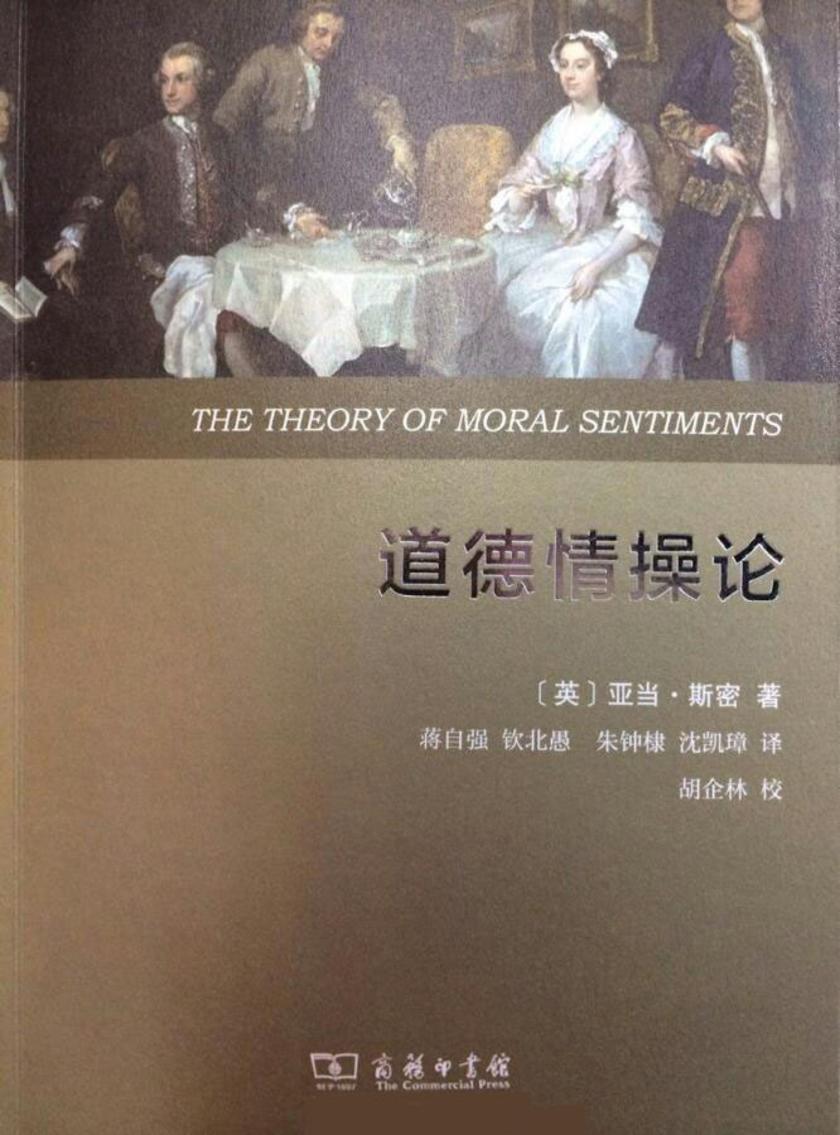
道德情操论
¥18.09
在《道德情操论》中,斯密谈到本性贪婪和自私的地主的行为动机时说:“富人只是从这大量的产品中选用了贵重和中意的东西。他们的消费量比穷人少;尽管他们的天性是自私的和贪婪的,虽然他们只图自己方便,虽然他们雇用千百人来为自己劳动的目的是满足自己无聊而又贪得无厌的欲望……”。在《国富论》中,斯密又谈到唯利是图的资本家的行为动机。他说:“把资本用来支持产业的人,既以牟取利润为目的,他自然总会努力使他用其资本所支持的产业的生产物能具有*价值,换言之,能交换*数量的货币或其它货物。” 在斯密看来,个人利益是人们从事经济活动的出发点;而从利己出发从事经济活动的人,就是斯密所假设的“经济人”(主要是指资本家)。正因为斯密把利己主义作为“经济人”活动的根据,所以,西方某些研究者既把斯密看成是古典经济学的主要代表人物,又把他看作是一个信奉“适者生存”的被现金交易关系和残忍的竞争所支配的理论家。
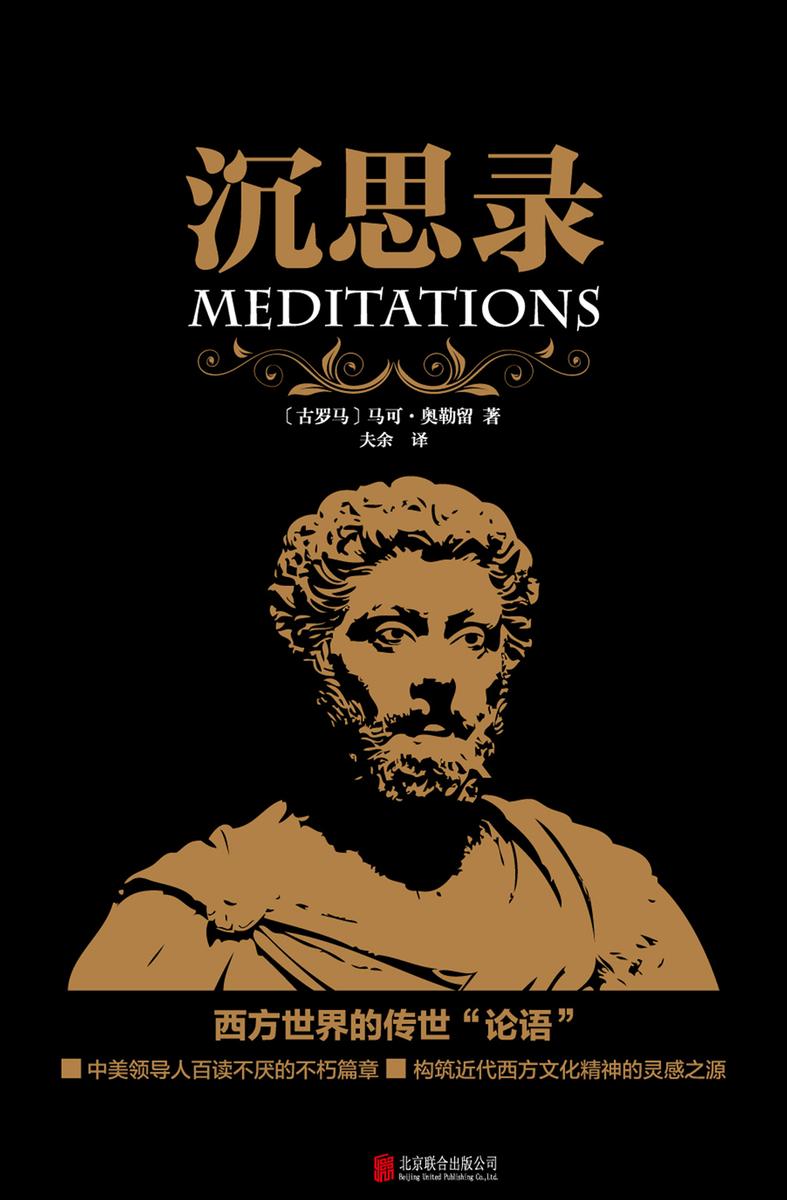
沉思录
¥12.99
《沉思录》写于奥勒留担任罗马帝国皇帝期间,战乱不断、灾难频发的时代环境促使奥勒留经常与自己的心灵对话,全书对富贵名利、社会责任、道德修养、存在与死亡等诸多问题行了哲学式思考。字里行间凝聚着智慧、闪烁着思想的光芒,对于提高个人修养、促社会和谐以及人类优秀文化的传承具有较高的价值,可以起到引人深思、发人深省、拯救灵魂的作用。


贺麟中译黑格尔经典著作
¥346.00
《贺麟中译黑格尔经典著作》套装:小逻辑,黑格尔早期神学著作,精神现象学,哲学史讲演录《小逻辑》“贺麟全集”卷本书是《哲学全书纲要》的部分,通称《小逻辑》,以区别于《大逻辑》(即逻辑学)。全书除导言外,共分:存在论、本质论、概念论三篇,反映了黑格尔哲学体系的基本框架。黑格尔的《小逻辑》是构成他的《哲学全书》的一个主要环节,它的好处在于把握住全系统的轮廓和重点,材料分配均匀,文字简奥紧凑,而义蕴深厚。初看似颇难解,及细加咀嚼,愈觉意味无穷,启发人深思。他的学生在他逝世后编订全集时,再附加以学生笔记作为附释,于是使得这书又有了明白晓畅,亲切感人的特点。《黑格尔早期神学著作》“贺麟全集”第八卷《黑格尔早期神学著作》是著名哲学家、翻译家贺麟的重要译著之一,以八十岁高龄自诺尔编黑格尔著《早期神学著作》的德文原版翻译而成,并参考诺克斯与克朗纳的英译本。本书也是身为译介黑格尔至中国人的贺麟先生,生前后一部黑格尔相关译著。其中收入黑格尔著《民众宗教和基督教》《耶稣传》《基督教的权威性》《基督教的精神及其命运》及《1800年体系残篇》等五篇论文,是了解和研究黑格尔早期神学思想的手资料。《精神现象学》(上下)“贺麟全集”第15—16卷新校重排本,黑格尔哲学的“圣经”,深刻影响马克思、海德格尔、伽达默尔的哲学经典,对勘上卷初版与再版修订译文,存历史原貌利研究之便。《精神现象学》为德国古典哲学大师黑格尔阐述其哲学观点和方法论原则的部纲领性巨著。黑格尔自认此书为其哲学体系的导言。马克思誉《精神现象学》为“黑格尔哲学的真正起源和秘密”和“黑格尔哲学的圣经”。黑格尔通过此书提出,精神现象学是关于意识到达“*知识”或“科学”(即哲学)的道路的科学,它为个体提供了一把攀登*知识的“梯子”。中译本由贺麟、王玖兴合译,分上、下卷先后于1962年和1979年由商务印书馆出版。上卷1979年再版时曾修订译文,以与下卷译名统一,本次整理出版“贺麟全集”版,对勘再版所作修改,择其重要者,以编注形式留存上卷初版原貌。《哲学史讲演录》“贺麟全集”第11—14卷全新校对,重新排版,据贺麟手迹修订部分文字;德国古典哲学大师黑格尔天才的著作之一,哲学史的开山之作和经典; 贺麟弟子、著名哲学教授张祥龙参与修订编辑;重新收入苗力田选译黑格尔哲学史相关书信。《哲学史讲演录》是德国古典哲学大师黑格尔的代表作之一,“哲学史”的开山之作,治哲学者之书。黑格尔一方面将哲学史纳入他的客观唯心主义体系的框架中,把哲学史归结为理念回归自身的*精神阶段;另一方面把辩证法贯彻于哲学史研究,深刻地揭示了哲学史的发展规律。20世纪五六十年代,贺麟、王太庆等先生将其译成中文出版,是贺麟先生译述黑格尔的重要成果。本次收入“贺麟全集”出版,解决了之前版本由于出版时间相隔较远而存在的体例不一等问题,更符合当下阅读习惯。
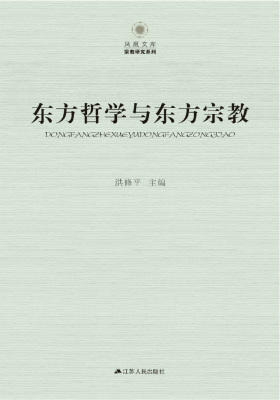
东方哲学与东方宗教
¥69.76
东方,狭义的主要是指中国、日本、印度以及周边的国家和地区,广义的则大致是指欧洲以东,包括从阿拉伯半岛一直到西太平洋的广袤地区。本书的论述范围,取东方之广义。东方是人类文明*早和*重要的发祥地,曾诞生和培育了人类历史上那些*古老、*悠久的文明,如美索不达米亚文明(包括苏美尔文明、巴比伦文明和亚述文明)、埃及文明、印度文明、中国文明等,在“四大文明古国”或“五大文明发祥地”中都占据着举足轻重的地位。后来的希腊文明、罗马文明乃至基督教文化等世界各种文明,都或多或少地受到东方文明的熏陶和影响。在不断的文明创造中,东方孕育了许多在人类历史上产生过重要影响的宗教,如美索不达米亚宗教、古埃及宗教、婆罗门教、佛教、印度教、道教、神道教、琐罗亚斯德教、摩尼教、犹太教等,也创立了自己发达的哲学,如印度哲学、犹太哲学,特别是以儒道为主要代表的中国哲学。本书对东方哲学与宗教做了系统而又简明扼要的介绍和分析,生动展示了东方哲学与宗教的丰富内涵。


简而美的哲学小史
¥13.08
简单好读的哲学门书 让自我的哲学探索变成轻松的阅读消遣 在《简而美的哲学小史》中,深奥晦涩的哲学史被划分为极易消化的小板块,让读者可以一次啃完,快速读懂哲学3000年发展过程,轻松掌握120位哲学大师的思想精华,从更具智慧的视角理解什么是哲学,以及哲学的力量所在,激发读者一步学习哲学的欲望,看到不一样的全新自我。

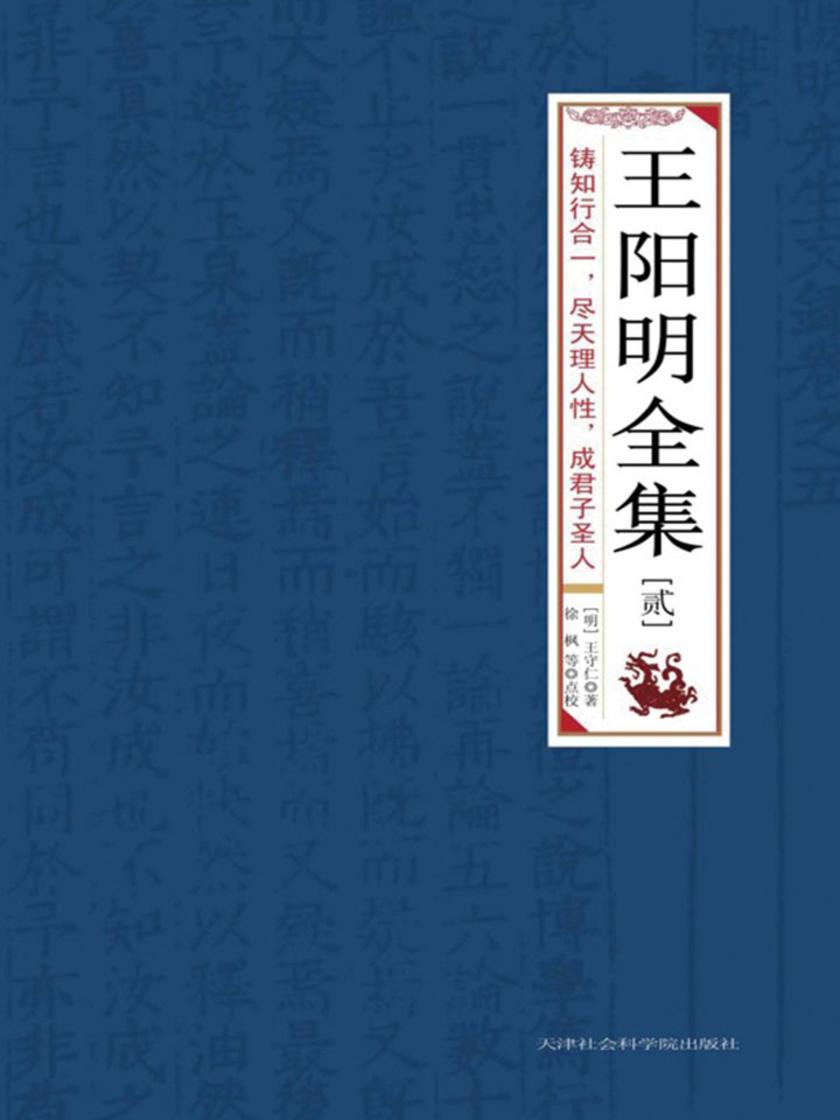
王阳明全集(贰)
¥10.00
王阳明为明代哲学家。其学上承孔子,孟子,中继陆九渊,而形成为风靡时代中后期并与程朱理学分庭抗礼的阳明心学。其学说不仅对我国明、清现代以至近现代的儒学有较大影响,而且波及日本、朝鲜等国,成为东方文化的一个组成部分。《王阳明全集》原称《王文成公全书》,为王守仁的作品集。此次出版以明隆庆年间(公元1567年-1572年)谢廷杰辑刊本为底本,简体横排,并加以现代标,方便当今读者阅读。《王阳明全集》共三十八卷,收《传习录》三卷,后附《朱子晚年定论》;《文录》五卷;《别录》十卷;《外集》七卷;《续编》六卷;后七卷为《年谱》与《世德纪》。原刻本为二十四册,本次分4册排印。


百年大师经典书系(中国人的修养+中国人的品德+中国人的禅修)(套装共3册)
¥10.00
百年大师经典书系(中国人的修养+中国人的品德+中国人的禅修)(套装共3册)。《中国人的修养》完美结合了中华传统文化中的修身、齐家、治国、平天下与现代公民应具备的素养,通过细微事件,具体、详尽地阐述了建设规范、道德社会的方法,是一部值得所有国人阅读的书。 它主要包括四部分,华工学校讲义(德育三十篇,智育十篇),中学修身教科书上篇,中学修身教科书下篇,关于国民之修养。这是一部百年罕见的公民道德实践之书,放在现在意义非凡。今天中国的青年,若想要从我做起,培养健全的人格、塑造合格的公民,《中国人的修养》实具有重要的指导价值。 《中国人的品德》精选了傅斯年关于中国人的品德与中国文化的深层次思考,主要包括六部分:1中国人的品德,2我们需要什么样的社会和政府,3民主与自由,4事业与人生,5我们需要什么样的文学,6我们需要什么样的教育;这些文章对于处于转型期的中国社会和探索人生的读者极具启示。 《中国人的禅修》阐述了弘一法师关于人生修养与佛学智慧的文章。在这部著作中,弘一法师以大学者、大艺术家的俗家修为,向常人揭示了佛门的真谛和人生的真义。书中收集的弘一法师说佛讲禅的内容,很多是整理出版。在这本著作中,除了弘一法师的著作之外,还有一部分他的演讲稿与处世格言,这些内容被梁实秋、林语堂等名家誉为“一字千金,值得所有人慢慢阅读、慢慢体味、用一生的时间静静领悟”。 弘一大师平生注重实践,本书可谓要言不烦,只要用心品读,定可见大师的慈悲心怀,并用以启迪我们的人生。
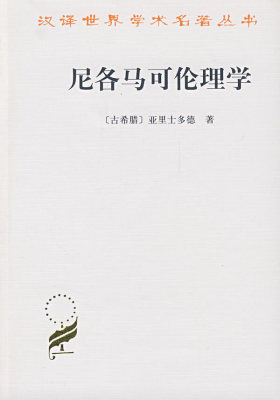
尼各马可伦理学(试读本)
免费
本书根据亚里士多德的授课讲义整理而成,堪称西方伦理学的山之作。在书中,作者系统地阐述了善、道德德性、行为、公正、理智德性、自制、快乐、友爱、幸福等概念,其中不乏精辟的思想和精彩的论述。

道德哲学与实践理性(试读本)
免费
本书的目的是要致力于理解道德义务的本质及其动机基础。只有通过把这个问题置于一个广泛的背景下,才能充分地理解它的重要性和严重性。首先,这个问题实际上可以被看作是道德哲学的核心问题。其次,只有以“道德义务”这个概念兴起和演化为历史背景,才能充分认识到当代对“道德义务”这个问题的争论的实质和含义。全书共分十章,内容包括道德义务与现代道德哲学;道德动机与道德判断;理性、信念与休谟的自然主义;伦理自然主义与道德客观性;怀疑论、理性与政治学等。
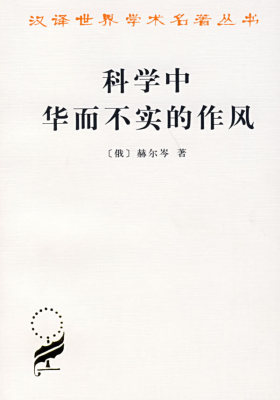
科学中华而不实的作风——汉译世界学术名著丛书(试读本)
免费
本书中收赫尔岑在十九世纪四十年代中所写的四篇辉煌的哲学论文。赫尔岑在这几篇论文中,尖锐地嘲笑了当时莫斯科知识分子在科学上只满足于一知半解,而不肯刻苦钻研的华而不实的作风,极其精辟地论述了古典主义和浪漫主义这两种思潮在西欧产生、发展和衰落的过程,并且严厉地批判了当时俄国哲学界的脱离生活、脱离实际的恶习。他热烈地鼓吹哲学要同革命斗争联系起来,要为改造社会而服务。赫尔岑这几篇论文对于促俄罗斯思想中唯物主义传统的巩固和发展,曾经起过重大的作用,因而博得了别林斯基极高的好评。

权力意志(上下卷)(试读本)
免费
考订研究版《尼采全集》第12卷和第13卷包含尼采自1885年秋至1889年1月初的全部残篇遗稿,此即考订版《尼采全集》第八部分的内容。这些残篇遗稿由22本手稿组成,其中有15个较厚的本子,3个小笔记本和4个文件夹。 我们出版尼采残篇遗稿所遵循的原则,已经在《尼采全集》第7卷前言中指明,可供查阅。 对于考订研究版第12卷和第13卷,我们还得作如下说明:这两卷具有特殊的重要意义,原因在于,它们完整地、以忠实于手稿的方式呈现了尼采1885年秋至1889年初(其创作活动的结束)期间的全部残篇、计划、提纲和标题,因此为终解决关于所谓的尼采哲学主要著作一一以《权力意志》为书名一一的聚讼纷纭的问题提供了基础。以编年顺序排列的残篇,给出了一种准确的、近乎完备的对尼采1885年秋至1889年1月初之间的创作活动和文字意图的描绘。
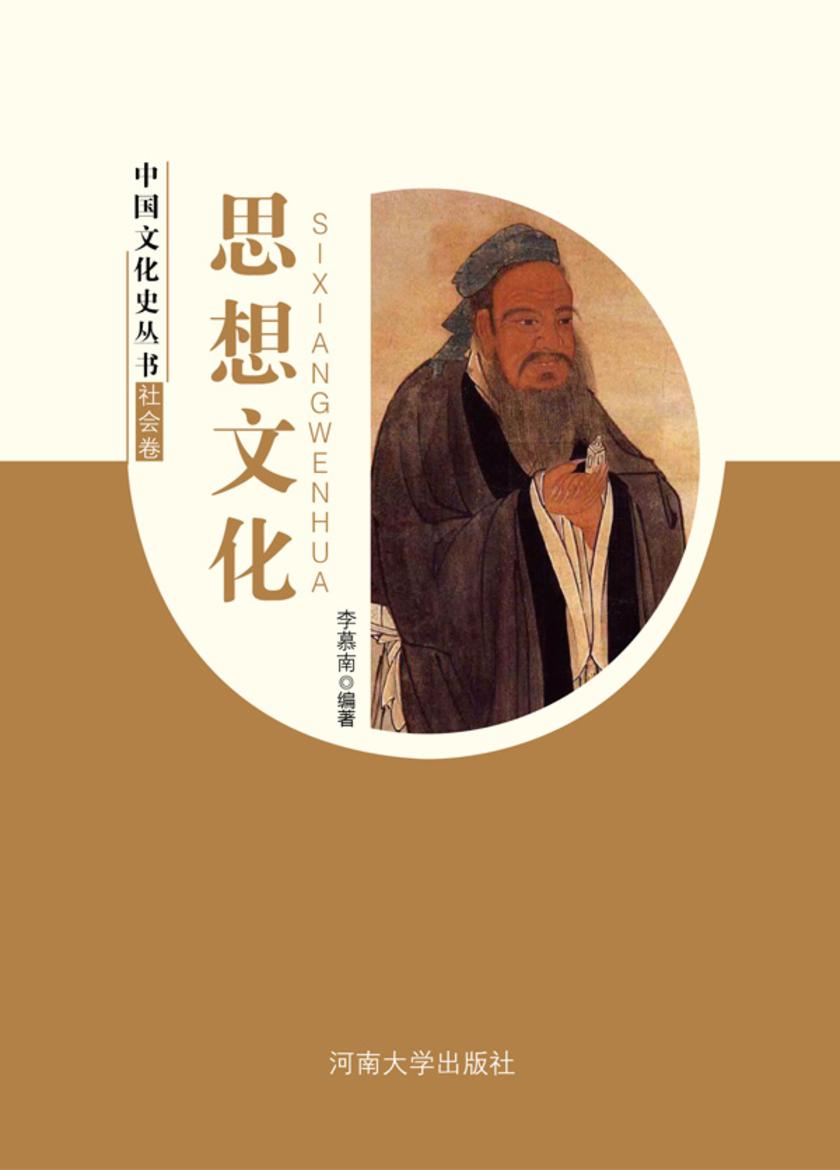
思想文化
¥2.93
中华民族是世界上古老的民族,中华文明是世界上悠久的文明之一。中国有文字记载的历史近5000年之久,从公元前841年开始,有文献可考的编年史从未间断,至今已近3000年,这在人类历史的长河中是*的。世界四大文明古国中,只有中国的历史始终传承有序,从未中断。




 购物车
购物车 个人中心
个人中心



